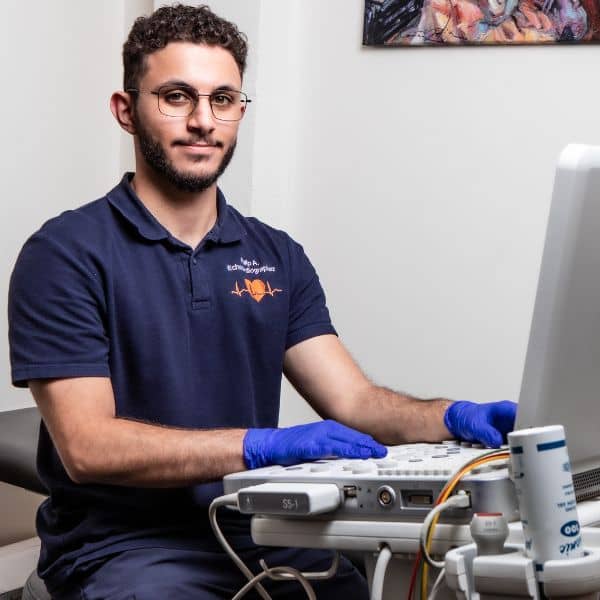- Mena Salib
- 0 Comments
Recovering from a cardiac intervention is a critical phase in a patient’s journey towards improved heart health. As a leading cardiac interventionist in Sydney, we understand the significance of providing comprehensive care and guidance throughout the recovery process. In this article, we will delve into what patients can expect during their recovery from a cardiac intervention, equipping them with knowledge and support to navigate this important phase of their treatment journey. With a focus on simplicity and readability, we aim to provide easy-to-understand yet SEO-rich information to help patients make informed decisions and optimize their recovery.
Recovering from Cardiac Intervention: What to Expect
- Immediate Post-Procedure Care:
Immediately following a cardiac intervention, patients are typically closely monitored in a recovery area, such as a cardiac intensive care unit (CICU) or a specialized cardiac recovery unit. The duration of this immediate post-procedure care may vary depending on the specific intervention and individual patient circumstances. During this time, healthcare professionals will closely monitor vital signs, such as heart rate, blood pressure, and oxygen levels, to ensure stability and detect any potential complications. Pain management measures will also be in place to ensure your comfort. Additionally, specific procedures, such as removing sheaths or catheters, may be performed as part of the recovery process. Your healthcare team will provide you with detailed instructions on what to expect during this phase, as well as guidance on wound care, activity limitations, and medication management.


- Physical Recovery:
Physical recovery is a crucial aspect of the post-cardiac intervention journey. The pace and progression of physical recovery may vary from patient to patient, depending on factors such as the type of intervention, overall health, and any pre-existing conditions. Following the immediate post-procedure care phase, patients will gradually transition to a more stable condition, and specific activities and exercises may be recommended to aid in the recovery process. Your healthcare team will guide you on gradually increasing physical activity levels, such as walking and light exercises, to rebuild strength and endurance. It is important to follow these guidelines closely, as they are designed to promote healing, minimize complications, and optimize long-term outcomes. Your interventionist may also recommend cardiac rehabilitation, a structured program that combines exercise, education, and counseling to support your recovery and reduce the risk of future heart problems. Participating in cardiac rehabilitation can provide numerous benefits, including improved cardiovascular fitness, better management of risk factors, and enhanced emotional well-being.
- Emotional Support and Rehabilitation:
Recovering from a cardiac intervention can have emotional and psychological impacts on patients. It is normal to experience a range of emotions, including anxiety, fear, and uncertainty, during the recovery process. Seeking and receiving appropriate emotional support is essential for a holistic recovery. Your healthcare team, including cardiologists, nurses, and support staff, are well-equipped to provide guidance, reassurance, and emotional support throughout your journey. They can address your concerns, provide education on managing your emotional well-being, and offer resources for additional support if needed. Joining support groups or engaging with patient communities can also be beneficial, as you can share experiences, gain insights, and find comfort in knowing that you are not alone on this journey. Additionally, your healthcare team may recommend stress management techniques, such as relaxation exercises, meditation, or counseling, to help you cope with the emotional challenges associated with recovery.
- Gradual Resumption of Daily Activities:
As your recovery progresses, you will gradually regain your strength and endurance, allowing you to resume your daily activities. It is important to follow the guidance of your healthcare team regarding when it is safe to return to work, drive, and engage in recreational activities. While the timeline may vary, most patients can expect to gradually resume these activities within a few weeks or months, depending on the complexity of the intervention and individual recovery progress. It is crucial to listen to your body and not push yourself beyond your limits. Communicate any concerns or difficulties you may encounter to your healthcare team, as they can provide further guidance and adjustments to your recovery plan if necessary.
Conclusion:
Understanding the recovery process after a cardiac intervention is essential for patients to actively participate in their own healing. By following the guidelines provided in this article and maintaining open communication with your healthcare team, you can optimize your recovery and improve your overall heart health. Each patient’s recovery journey is unique, and personalized care is crucial for a successful recovery. As a dedicated cardiac interventionist in Sydney, we are committed to providing comprehensive care, ensuring that patients have the knowledge and support they need to recover successfully and maintain a healthy heart. Remember, the recovery process may take time, but with patience, perseverance, and the right support, you can regain your strength and lead a fulfilling life.
